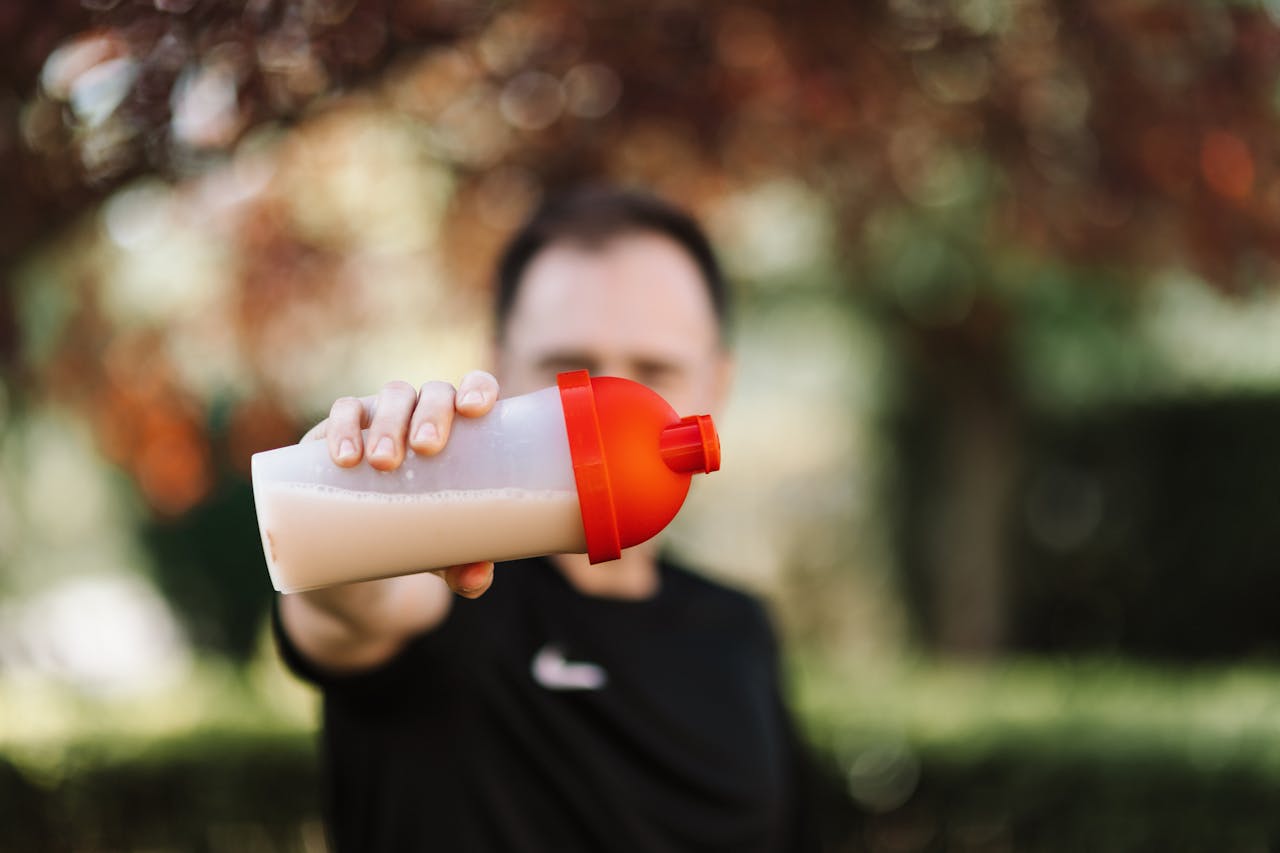
Have you heard that you need to rush home from the gym to drink your protein shake within the “anabolic window”? Or that you must eat protein every 3 hours to maintain muscle? Let’s separate fact from fiction with a science-based look at protein timing and muscle growth.
The Truth About the “Anabolic Window”
For years, gym-goers have stressed about consuming protein immediately after training. However, recent research tells a different story:
- The “anabolic window” is much wider than previously thought
- Muscle protein synthesis remains elevated for 24-48 hours after training
- Pre-workout protein can be just as effective as post-workout protein
What Really Matters: Total Daily Protein
Research consistently shows that your total daily protein intake is far more important than timing. Here’s what you should focus on:
Daily Protein Targets
- Muscle maintenance: 1.6g per kg of body weight
- Muscle growth: 1.8-2.2g per kg of body weight
- During fat loss: Up to 2.4g per kg to preserve muscle mass
For example, a 75kg (165lb) person aiming for muscle growth should consume 135-165g of protein daily.
Optimal Protein Distribution
While exact timing isn’t crucial, spreading your protein intake throughout the day can be beneficial:
Sample Distribution for 4 Meals:
- Breakfast: 25% of daily protein
- Lunch: 25% of daily protein
- Post-workout/afternoon meal: 25% of daily protein
- Dinner: 25% of daily protein
Practical Meal Planning Strategies
High-Quality Protein Sources (per 100g):
- Chicken breast: 31g protein
- Greek yogurt: 10g protein
- Eggs: 13g protein
- Salmon: 25g protein
- Lean beef: 26g protein
- Whey protein powder: 24g protein per 30g scoop
Simple Guidelines:
- Include a protein source in every meal
- Aim for 20-40g protein per meal
- Choose complete protein sources
- Consider convenience and personal preference
Special Considerations
Training Days
- Having protein within 2 hours before OR after training is beneficial
- Total daily intake matters more than workout timing
Fasting Periods
- Overnight fasting (8-10 hours) won’t cause muscle loss
- Morning protein intake helps reduce muscle protein breakdown
Common Myths Debunked
- “You must eat protein every 3 hours” ✓ Total daily intake is more important than frequency
- “You’ll lose gains if you skip post-workout protein” ✓ The anabolic window is much wider than previously thought
- “Plant proteins are inferior for muscle growth” ✓ Well-planned plant protein combinations can be equally effective
Making It Work for You
Practical Tips:
- Prep protein sources in advance
- Keep protein snacks handy
- Use protein supplements when whole food isn’t convenient
- Focus on consistency over perfect timing
Ready to Optimize Your Nutrition for Muscle Growth?
Stop stressing about protein timing and focus on what really matters. As your online personal trainer, I’ll help you:
- Calculate your optimal protein needs
- Create a sustainable meal plan
- Choose the best protein sources for your lifestyle
- Track progress and adjust as needed
[Book Your Free Consultation →] Get your personalized nutrition plan and start building muscle the science-based way.



